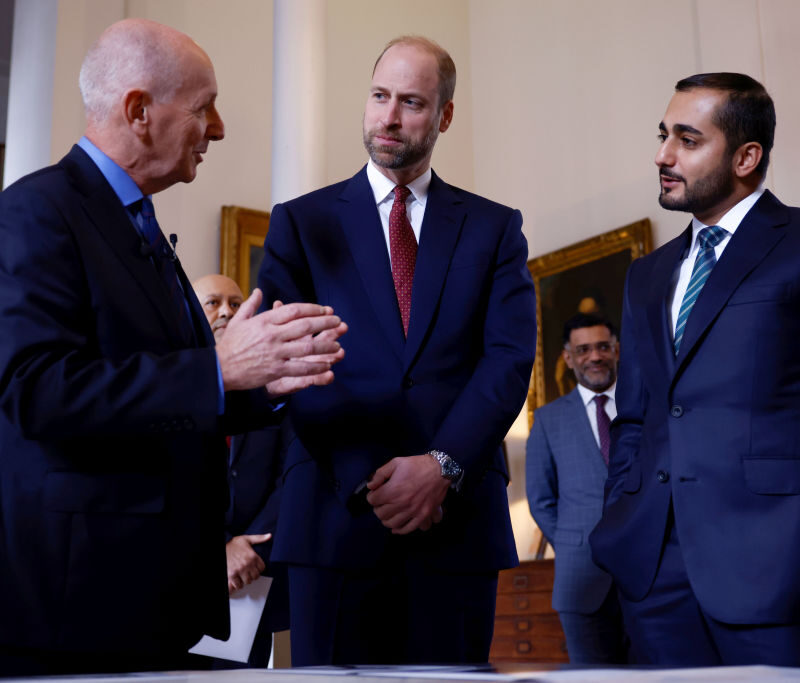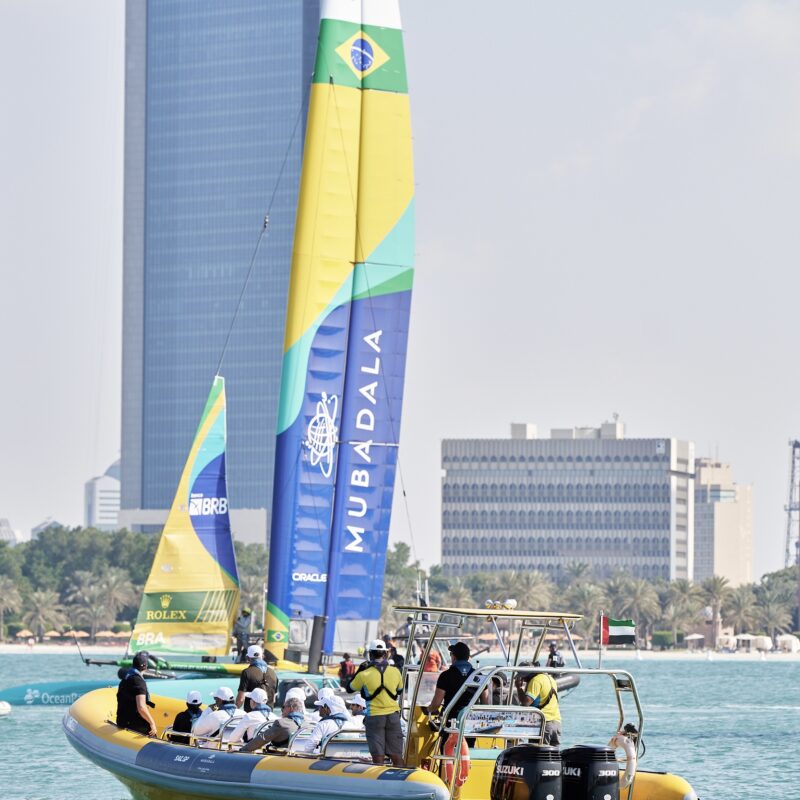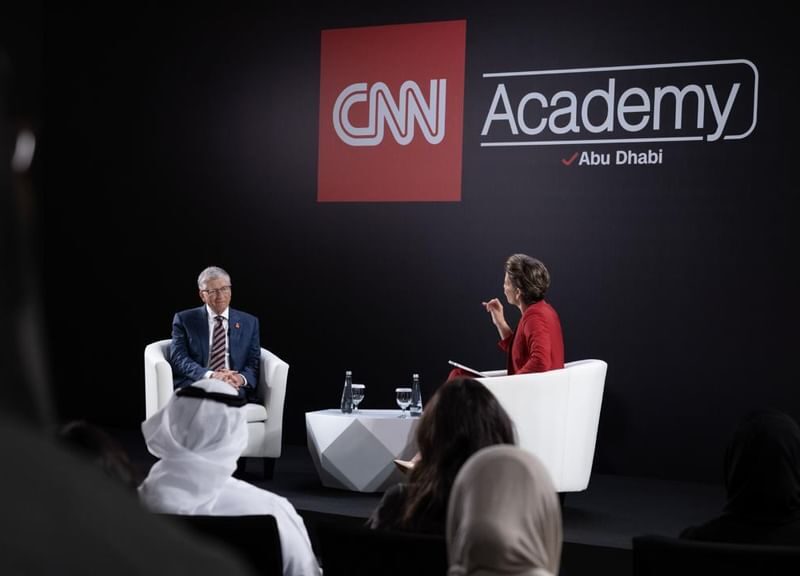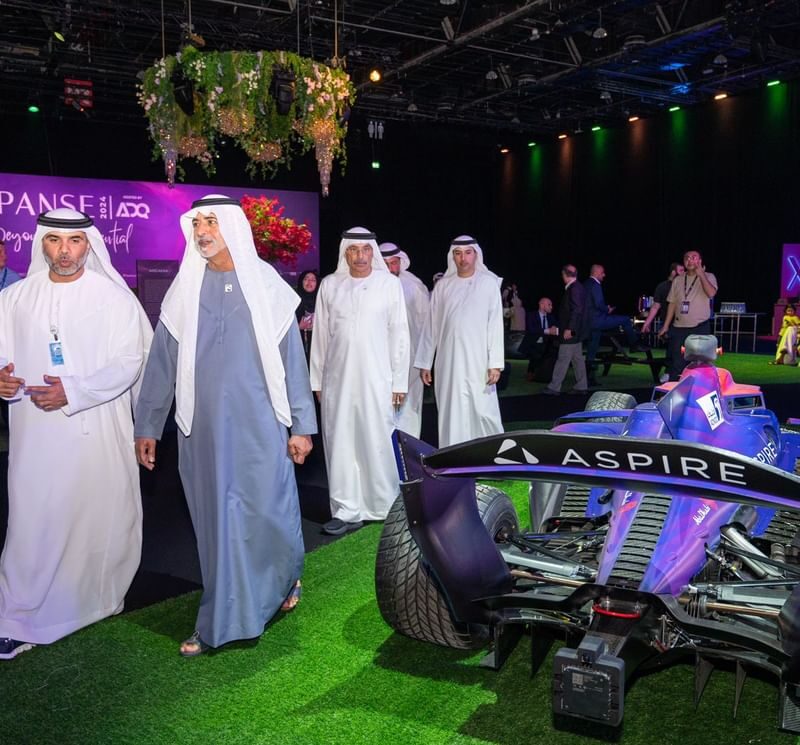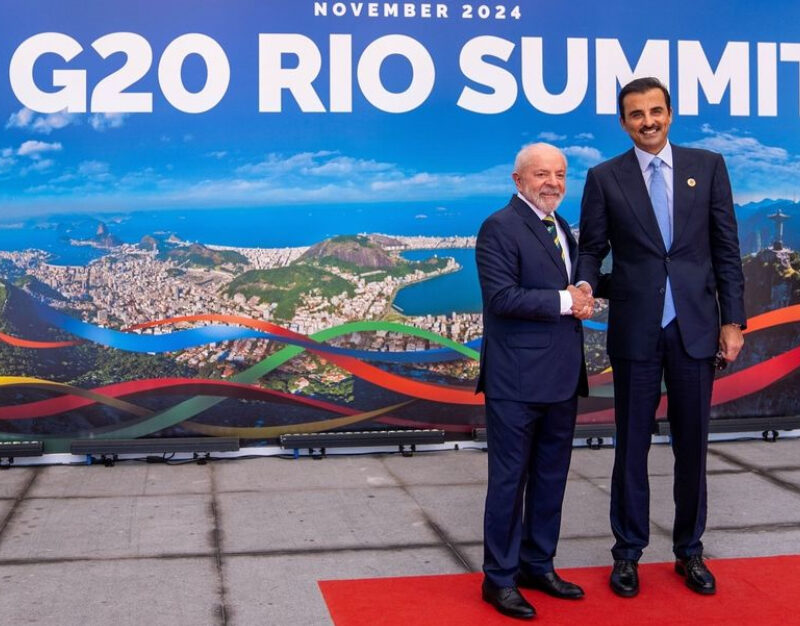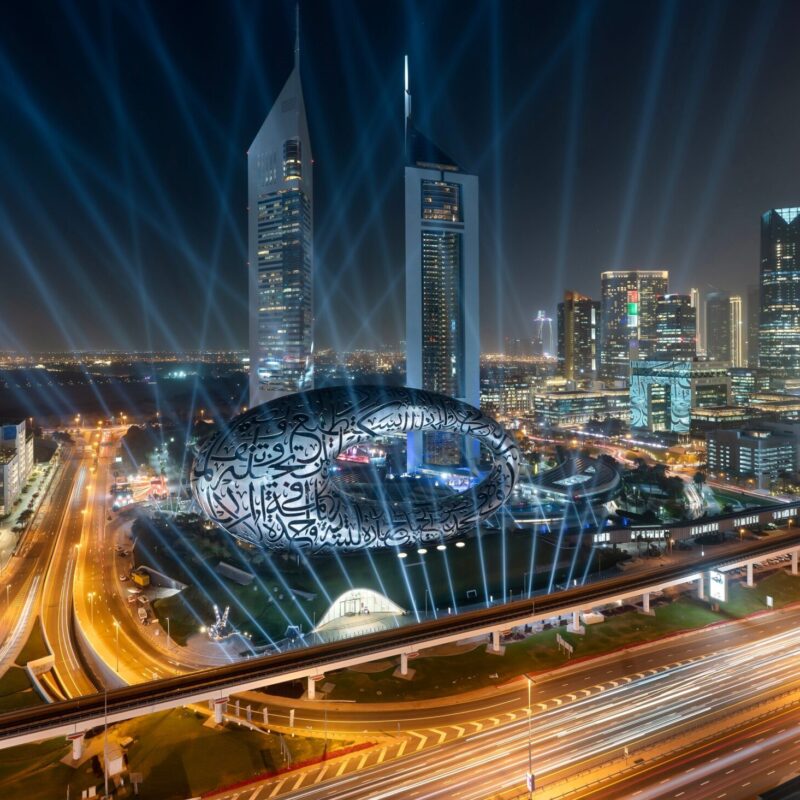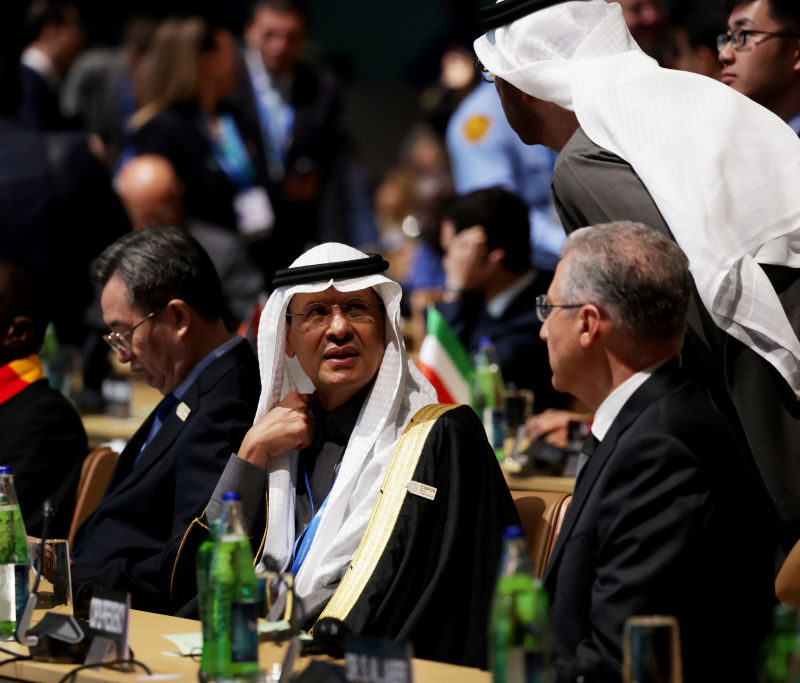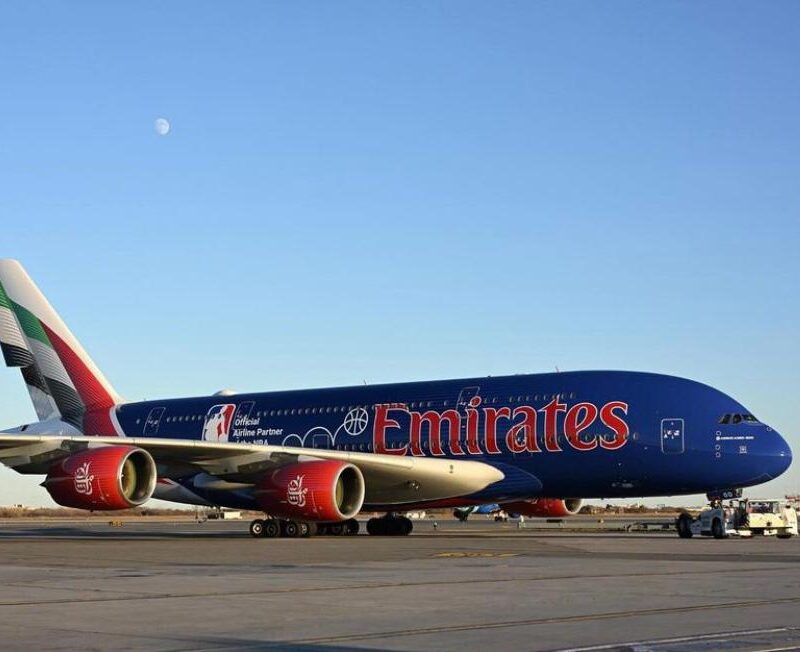The Weekly Circuit
👋 Good Monday morning in the Middle East!
Sam Altman, the CEO of OpenAI who has been chatting with world leaders about the opportunities and risks of artificial intelligence, arrives in the Middle East this week. The 38-year-old computer executive kicks off a regional tour in Israel today with a talk at Tel Aviv University and a meeting at Microsoft’s development center in nearby Herzliya. From there, he travels to neighboring Jordan, followed by appearances in the United Arab Emirates and Qatar. Altman will finish the week in India and South Korea.
Crisscrossing Europe and the U.K. last week, Altman was welcomed for private chats with French President Emmanuel Macron, Spanish Prime Minister Pedro Sanchez and British Prime Minister Rishi Sunak. OpenAI denied media reports that Altman had refused to meet with Israeli Prime Minister Benjamin Netanyahu and said he never received an invitation. In the UAE on Tuesday, Altman will hold an onstage talk at Hub 71, a center for tech startups in Abu Dhabi.
After a policy-setting meeting of the OPEC+ group in Vienna, Saudi Arabia announced on Sunday that it will again cut oil production by 1 million barrels a day in an effort to keep prices from falling. In a weekend of disputes and dealmaking, Russia and several African states emerged with their production quotas reduced for next year, while the UAE said it will increase production.
In Gulf real estate news, Dubai’s luxury market is driving a global rebound, with 88 homes selling for more than $10 million each in the first quarter, Bloomberg reports. The wealthy emirate’s Nakheel property company said it will resume development of its second tree-shaped artificial island, Palm Jebel Ali, where work was stopped in 2009 following Dubai’s real estate crash. The smaller Palm Jumeirah island, which features yacht docks along its frond-shaped neighborhoods, has become a favorite of Russian property buyers who have been flooding into Dubai.
Welcome to The Weekly Circuit, where we cover the Middle East through a business and cultural lens. Read on for the stories, deals and players at the top of the news. Please send comments and story tips to [email protected].
Spread the word! Invite your friends to sign up.👇
DRINK UP
UAE restaurants and hotels to offer bottled water drawn from the air
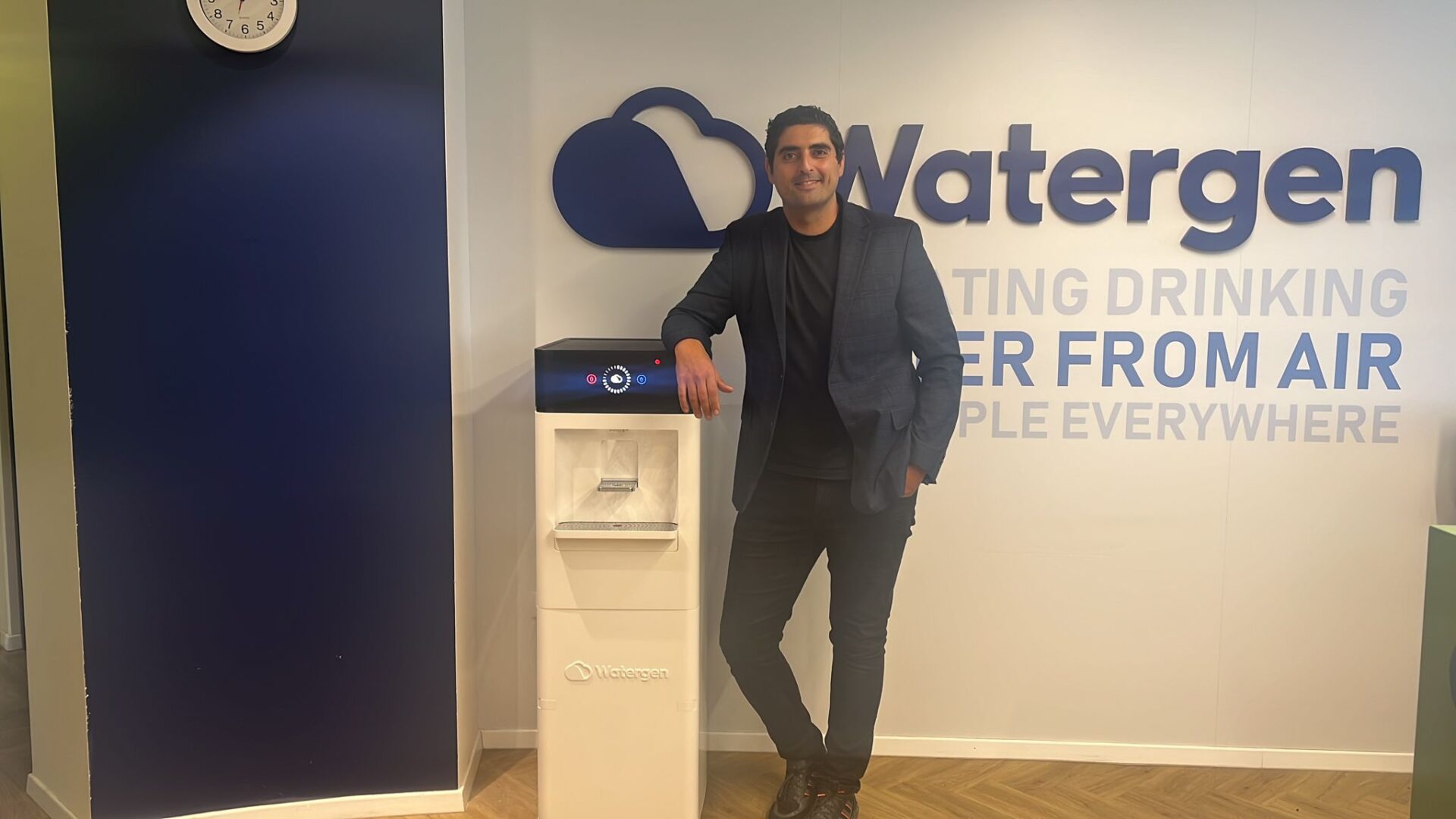
Diners at a selection of top restaurants and hotels in the United Arab Emirates will soon find a new brand of bottled water on their tables produced from the humidity in the Gulf state’s air. Presented in sleek blue-glass bottles with a silver cap, Ma Hawa non-carbonated water is being introduced in an Abu Dhabi-based joint venture with Watergen, the Israeli company that pioneered the process of extracting drinking water in commercial quantities from the atmosphere, Shoshanna Solomon reports for The Circuit.
Climate conference: “We are now building the brand and working on a pricing strategy,” Watergen CEO Steve Elbaz told The Circuit in an interview at the company’s Petah Tikva main office near Tel Aviv. Sales of Ma Hawa – which means water and air in Arabic – are scheduled to begin during late summer in the UAE. An official launch is planned to take place in Dubai at the United Nations climate conference COP28 in December.
Low humidity: Founded in 2009, Watergen is owned by Israeli-Georgian billionaire Michael Mirilashvili and uses technology developed by Israeli entrepreneur Arye Kohavi that requires only 20% humidity in the air and a temperature of least 15 C (59 F) in the facility where its generating station is housed. “That means we can generate water everywhere around the world, except Antarctica for the moment,” Elbaz said.
Thirst-quenching: Comparing the quality of Ma Hawa water to that of premium mineral water, the 38-year-old CEO offered Solomon a glass. She said the chilled water, which has minerals added in the production process, was thirst-quenching, with a neutral taste. It came from one of the dispensers employees use throughout the building that are connected to two generating units on the roof.
Drink and drive: Watergen produces a variety of units that generate from 20 to 6,000 liters of drinking water per day. They are being used in schools, hospitals, army camps, rural villages, natural disaster areas, outdoor events and office buildings. Soon to be introduced is a unit for home use and models for cars and trucks.
TECH TROUBLES
Investors see tough times persisting for Israeli startups
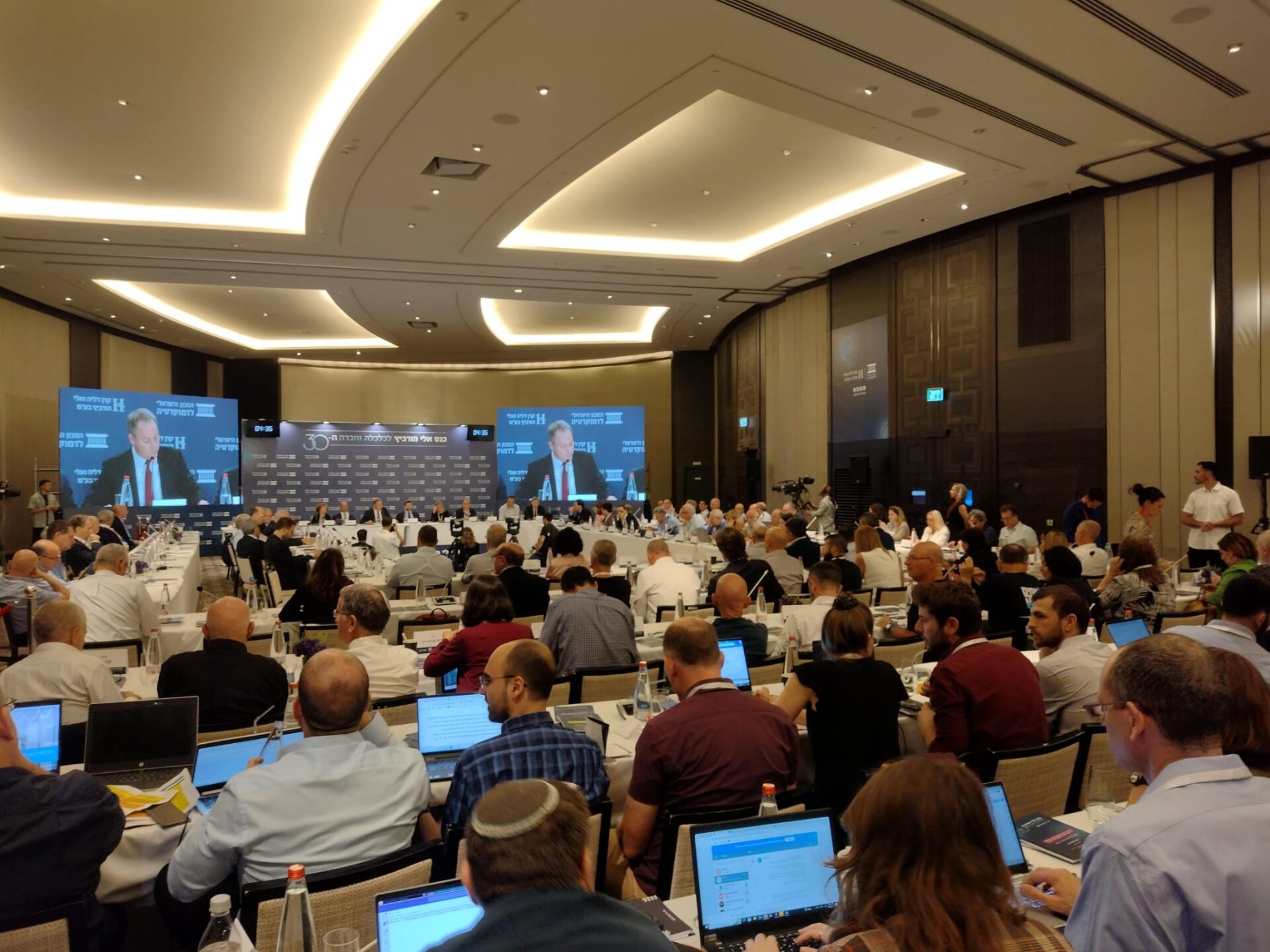
Concern about cybersecurity is bringing together states in the Middle East and North Africa to develop a regional approach to repelling digital threats. Representatives from the United Arab Emirates, Bahrain, Israel and the U.S. participated last week in a forum at the Atlantic Council in Washington, D.C., to discuss making cybersecurity a new field for cooperation under the Abraham Accords, The Circuit reports.
Harden defenses: “What we are doing here is seizing upon a geopolitical opening,” Robert Silvers, the U.S. Homeland Security undersecretary for strategy, policy and plans, said during the May 23 panel discussion, which was webcast from the Washington think tank. “We can work together as partners to harden up our defenses.”
Sharing expertise: Citing statistics that showed Israeli companies receiving 40% of global private capital invested in cybersecurity in 2021, generating $8.8 billion in exports, Israel’s ambassador to the U.S., Michael Herzog, said his country wants to share its expertise with regional partners. “We live in the same region. We are targeted by the same actors: state actors, non-state actors and cybercriminals,” Herzog said. ‘It’s only natural that we cooperate in the field of cybersecurity since we have so much going between us in so many fields [under the normalization agreements signed in 2020].”
Naval model: Cooperation between the U.S. Navy and Bahrain, where the U.S. 5th Fleet is based, could serve as a model for protection against computer threats, said Bahrain’s ambassador to the U.S., Abdullah bin Rashed Al Khalifa. “It’s about time that we do the same in the cyber realm,” he said. “The time is now, and I think that there is an appetite with the Abraham Accords. It has really opened up the opportunity to work together.”
Congressional caucus: The forum was organized by the Atlantic Council’s N7 Initiative, which is supported by the Jeffrey M. Talpins Foundation in New York. Among other participants were Mohamed Al-Kuwaiti, the UAE government’s head of cybersecurity; Jeanette Manfra, global director of security and compliance at Google; Rep. Elissa Slotkin (D-MI), co-chair of the House Cybersecurity Caucus; and Sen. James Lankford (R-OK), co-chair of the Senate Abraham Accords Caucus.
Circuit Chatter
Green Neom: A unit of Saudi Arabia’s Neom $500 million megacity project will begin producing green hydrogen next year as fuel for buses and trucks. Meanwhile, Hitachi Energy won a Saudi contract to help develop the power system for Neom.
Keeping U.S. Informed: International spyware companies are consulting with the U.S. government to avoid the fate of Israel’s NSO Group, which was blacklisted, the Financial Times reported.
Nuclear Aramco: Saudi Arabia proposed a joint civilian nuclear program in the kingdom with the U.S. patterned on the partnership that first created Aramco, Semafor reported.
Satellite Components: The UAE’s Strata Manufacturing is collaborating with the country’s space program to make aluminum honeycomb panels for satellites.
Speak My Language: Dubai opened a firefighting center with AI-powered virtual operators that can communicate with its largely expat population in multiple languages.
Kidney Transplants: Doctors from the Cleveland Clinic Abu Dhabi successfully performed a rare triple-swap kidney transplant, saving the lives of three patients.
Free Trade: New trade agreements with India, Israel, Indonesia and Turkey will boost by 1.6 billion the number of consumers UAE businesses can reach.
AI Value: AI applications have the potential to deliver $150 billion in value to Gulf countries but adoption of the technology has been slow, a McKinsey report says.
Risky Business: The Abu Dhabi Global Market published a report to help companies in the financial hub reduce the risk of ties to money laundering and terrorism financing.
3D Homes: Concreative, a Dubai company that specializes in 3D printing of concrete structures, was profiled by CNN as the technology is increasingly used in homebuilding.
Closing Circuit
Drive My Car: California-based electric vehicle manufacturer Lucid raised $3 billion in funding from Saudi Arabia’s Public Investment Fund and other investors. The carmaker is building its first overseas factory in the kingdom.
Software Writer: Builder.ai, a U.K. firm that helps businesses create software apps, raised $250 million in a funding round led by the Qatar Investment Authority.
Talking AI: Israel’s Hyro, which develops conversational artificial intelligence systems, finalized a $20 million Series B funding round led by Macquarie Capital.
Going Shopping: Saudi Arabia’s Public Investment Fund plans to acquire a 30% stake in Tamimi Markets, a domestic supermarket chain, and expand regionally.
Drinking Water: Abu Dhabi’s Mirfa 2 water desalination project secured $620 million in financing to become the UAE’s third-biggest plant using reverse-osmosis technology.
Pay Later: The Dubai-based fintech startup Tabby secured new financing of $350 million to expand its “buy now, pay later” shopping platform.
Carbon Credits: The world’s largest sale of voluntary carbon credits, backed by Saudi Arabia’s Public Investment Fund, will be held June 14 in Nairobi, Kenya.
Smart Manufacturing: Abu Dhabi started a $136 million fund to help small and medium-sized businesses adopt smart manufacturing technologies.
IPO Surge: Shares of ADNOC Logistics, the maritime logistics unit of the Abu Dhabi National Oil Company, soared 49% after its oversubscribed IPO raised $769 million.
On the Circuit
William, the Prince of Wales, and his wife, Kate Middleton, were among the guests at last week’s wedding of Jordan’s Crown Prince Hussein bin Abdullah II and Rajwa Alseif. Also attending were U.S. First Lady Jill Biden, Climate Envoy John Kerry and former White House advisers Ivanka Trump and Jared Kushner.
Khaldoon Al Mubarak, CEO of Abu Dhabi’s Mubadala sovereign wealth fund, was a guest lecturer at the Stanford University Business School, where he spoke about the role of sovereign wealth funds, the need for collaboration and leadership attributes.
Dina Powell McCormick is departing Goldman Sachs, and will become vice chairman and president of global client services at BDT & MSD Partners.
Sameh Al Qubaisi was appointed by First Abu Dhabi Bank as group head of global markets and Eric Shehadeh as group head of mergers & acquisitions and corporate development.
Ahead on the Circuit
June 4-6, Doha, Qatar: Fashion Future and Tech Expo. Designers and tech companies meet to discuss mix of fashion and technology in Middle East. Doha Design District.
June 13-15, Dubai: China Global General Trade Expo. Importers and wholesalers meet with suppliers of products made in China. Dubai World Trade Centre.
June 14, Riyadh, Saudi Arabia: Digital Health Conference – KSA. Health care technology companies, doctors, hospital, government officials meet for industry summit. Radisson Blu Hotel, Riyadh.
June 17-18, Tel Aviv, Israel: Fintech Junction. Conference brings together investors, bankers, regulators and financial tech company executives. Hilton Tel Aviv.
June 20-22, Riyadh, Saudi Arabia: The Saudi Food Show. Chefs, restaurateurs, food company executives, and government officials gather for trade show. Riyadh .International Convention and Exhibition Center.
Culture Circuit
On Location: Saudi Arabia’s Telfaz11 entertainment company has formed a partnership with the city of Neom to create content for films and television. Telfaz11 produced “Raven Song,” Saudi Arabia’s submission for the Oscar, and “Sattar,” the highest-grossing Saudi film of all time.
Big Payday: The New York Times looks at how Saudi Arabia is paying top price for star soccer players in a similar way it attracted pro golfers to join the LIV Golf tournament.
Soccer Dynasty: Pep Guardiola, manager of the Manchester City soccer team, reflects on how the Abu Dhabi owners built the championship team since 2008.
Water Adventures: Abu Dhabi’s new Seaworld, the biggest and most high-tech theme park in the world, takes visitors beyond aquariums into environments that range from a Caribbean beach resort to an icy polar mountain range.
Straight Talk: “The Dejargonizer” is a lively new podcast hosted by Amir Mizroch, former tech editor at the Wall Street Journal for the Europe, Middle East and Africa region. Through examples and interviews, the program aims to cut through industry language that is incomprehensible to outsiders and help startups make their stories more compelling.


